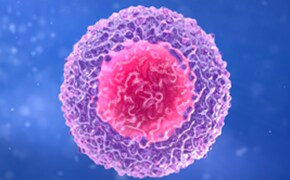Immunology Research

As the study of the immune system in both health and disease, immunology research covers a wide range of topics. While there are on-going efforts to understand intracellular immunity mechanisms and effector mechanisms of the immune system, a significant number of researchers are focused on the study and role of the immune system in disease. Researchers in these areas study diseases interrelated by cellular, molecular, and genetic regulatory mechanisms that dictate the associated immune response, such as cancer, infections, chronic inflammation, autoimmune diseases, allergies, and tissue transplantation.
Related Articles
- Antibody-based serology tests are useful in identifying subjects with an adaptive immune response to the SARS-CoV-2 virus. Anti-human immunoglobulin antibodies allow for quick and simple, yet reliable assays with easy readouts and can also be adapted for high-throughput screening.
- Structural proteins of the SARS-CoV-2 virus are envelope (E), membrane (M), nucleocapsid (N), and spike (S). Find antibodies, inhibitors, and enzyme reagents for investigating coronavirus protein function.
- We offer agonists, antagonists, modulators and other bioactive small molecules for immune system signaling target identification and validation, as well as a variety of antibiotics, antivirals, and antifungals.
- Nitric oxide (NO) as a signal transporter in neurons, endothelial cells and in the immune system.
- Adjuvant selection is dependent on vaccine formulation and individual application. Effectiveness and safety are of primary importance in adjuvant selection, yet a number of other characteristics must be considered
- See All (4)
Related Protocols
- Structural proteins of the SARS-CoV-2 virus are envelope (E), membrane (M), nucleocapsid (N), and spike (S). Find antibodies, inhibitors, and enzyme reagents for investigating coronavirus protein function.
- Lipopolysaccharides (LPS) are characteristic components of the cell wall of Gram negative bacteria; they are not found in Gram positive bacteria. They are localized in the outer layer of the membrane and are, in noncapsulated strains, exposed on the cell surface. They contribute to the integrity of the outer membrane, and protect the cell against the action of bile salts and lipophilic antibiotics.
- Coronavirus qPCR Primer and probe sets for the detection of SARS-CoV-2 (Corona Virus), with additional real-time RT-PCR, RT-qPCR and supporting reagents available.
- MTT assay protocol for measuring cell viability, proliferation and cytotoxicity. Instructions for MTT reagent preparation and examples of applications.
- The following procedure has been evaluated with Ficoll-Paque PLUS and is recommended for separation of normal blood samples for maximum reproducibility.
- See All (4)
Sign In To Continue
To continue reading please sign in or create an account.
Don't Have An Account?